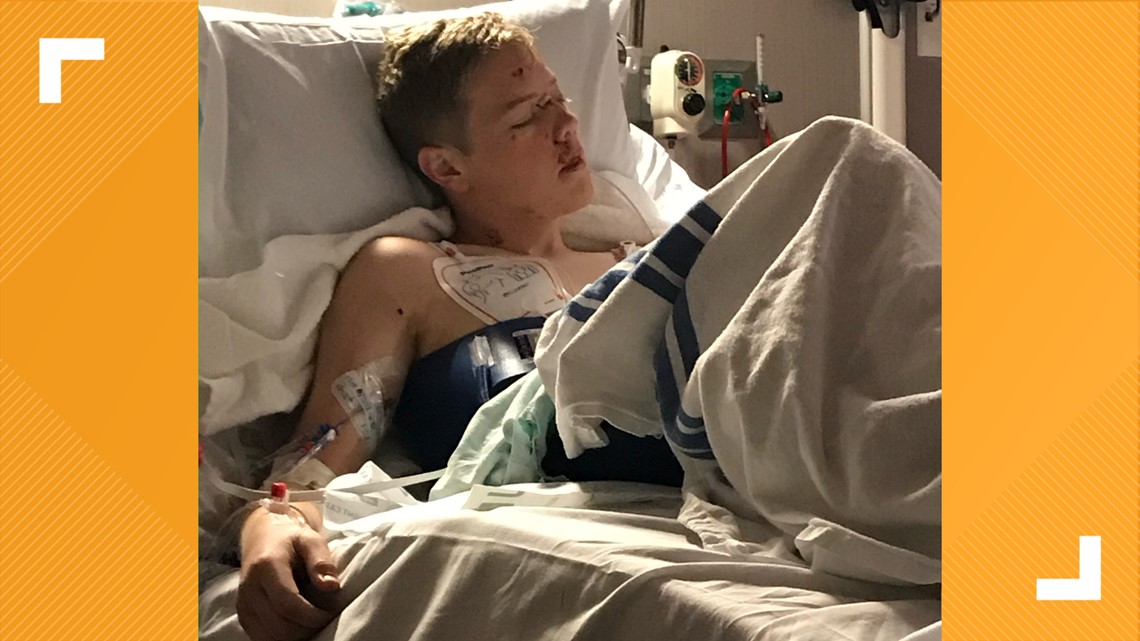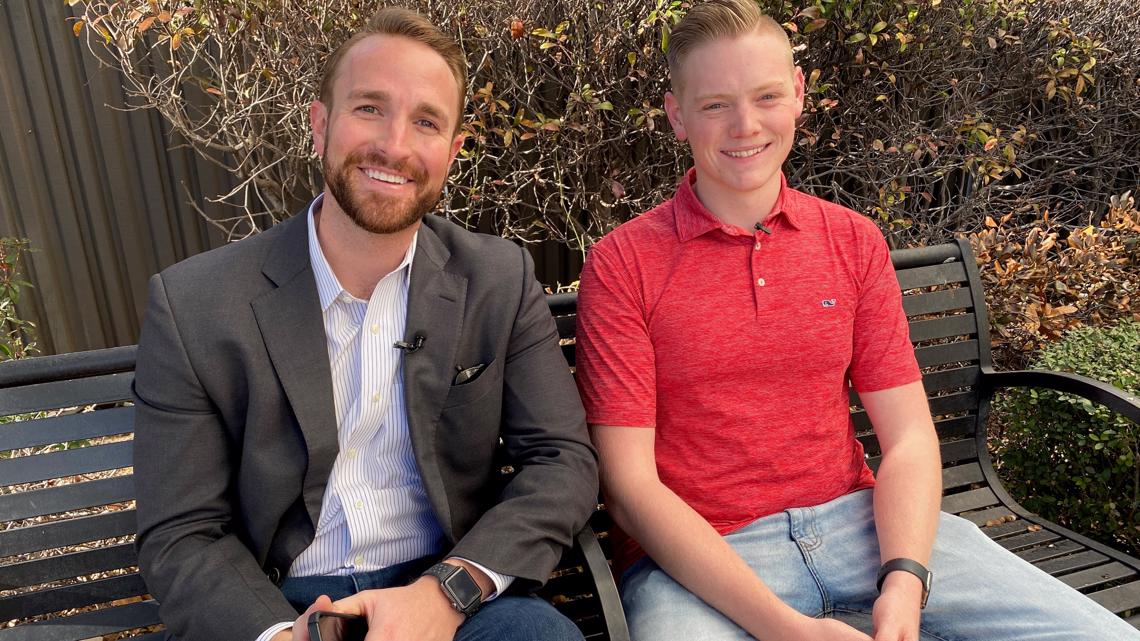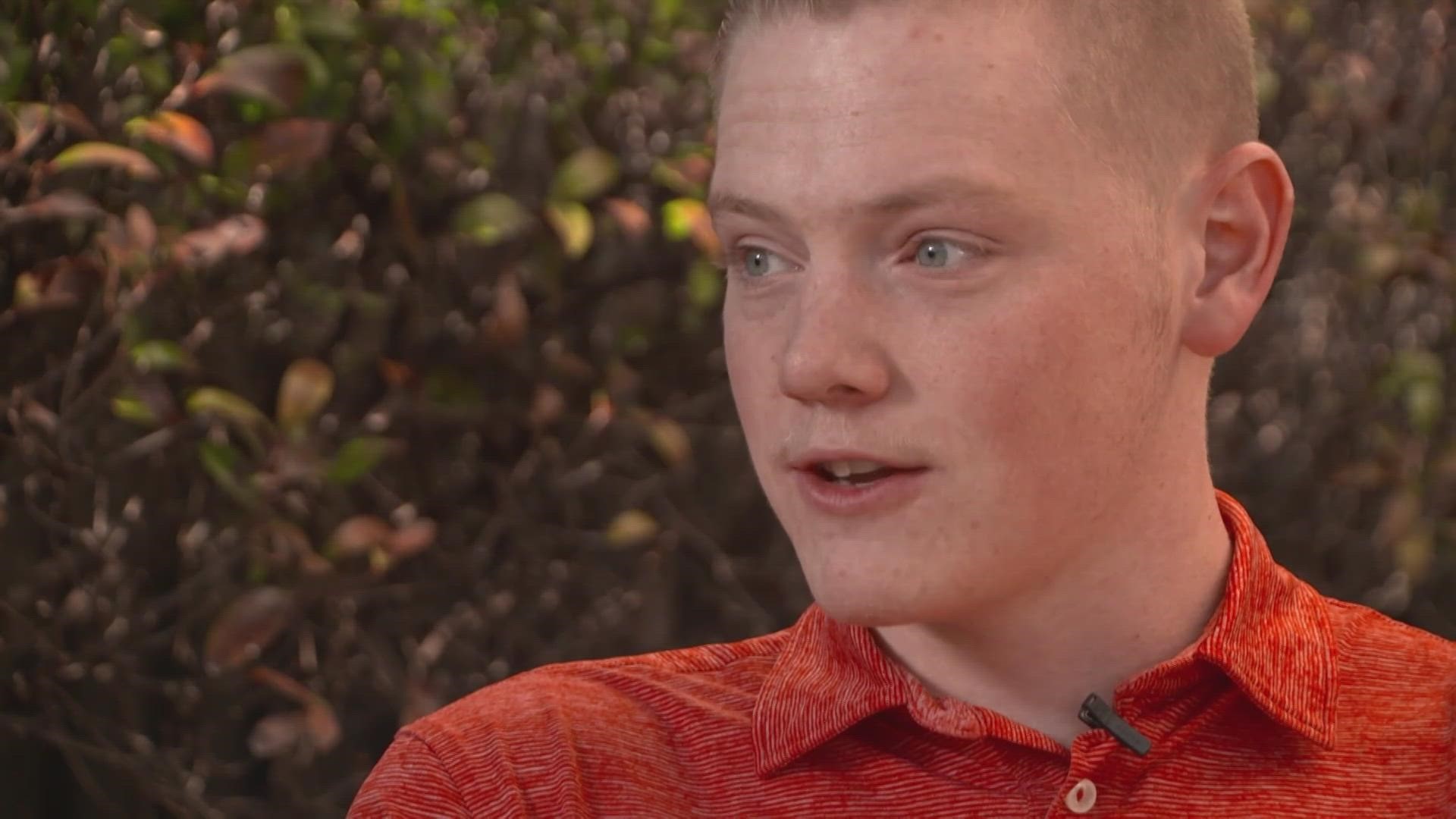DALLAS, Texas — Jan. 19, 2020, is a date Landon Wyrick can't ignore.
While doing something ordinary that day, something extraordinary also happened.
"I went on a run, just like any other day," Wyrick said. "And that's the last thing I remember doing."
Wyrick collapsed while he was jogging in a Wylie neighborhood. A stranger, who knew CPR, saw and rushed to help until medical professionals arrived.
Three years later, during American Heart Month, Wyrick still can't believe it: if it weren't for that stranger, he might not be here.
"Every single day, I think about it," Wyrick said. "I can't fully wrap my head around it."


Before running, Wyrick didn't know he had a rare heart condition lurking underneath his skin: Wolff-Parkinson-White Syndrome, or WPW for short.
Less than 20,000 people in America are diagnosed with WPW every year.
"It's estimated that about one to three in a 1,000 people have WPW, but we don't truly know because EKGs aren't done on everyone born," Dr. Manish Assar, a cardiac electrophysiologist with Baylor Scott and White Health told WFAA.
WPW became more well-known in North Texas recently after TCU quarterback and Heisman finalist Max Duggan revealed he had an ablation to fix the issue.
People with the rare congenital heart defect are born with an additional electrical pathway in their hearts. A normal person with a sinus rhythm is born with just one.
"It's an arrhythmic condition in which there's an extra connection in the top chamber and the bottom chamber of the heart," Dr. Assar said.
Many patients are asymptomatic, but the most common symptoms of WPW are rapid heart palpitations, or supraventricular tachycardia.
On the rare chance, less than a half percent of patients per year can manifest sudden cardiac arrest with WPW, per Dr. Assar.
That's what happened with Wyrick.
Think of the extra pathway as an additional door for electric signals in the heart to travel through that aren't regulated by the AV node.
Sometimes during exercise, those signals can cause the heart to short-circuit and beat faster than normal causing supraventricular tachycardia.
Luckily, a P.E. teacher noticed Wyrick had fallen on his jog.
"A guy was working on his garage door and he was CPR certified. He used that to save my life," Wyrick said.


Wyrick was out for at least ten minutes, he said. A 911 call made by the man's wife signals how valuable his knowing basic CPR was.
"He's fallen over and he's unconscious," the woman said on the phone. "My husband is doing chest compressions right now."
Wyrick said that other people stopped to help too as the operator walked them through what to do next while an ambulance was en route.
The now-23-year-old said he collapsed on a Sunday and woke up in a hospital on Tuesday to learn what happened.
He later met his rescuers when they were honored by the City of Wylie weeks later.
Dr. Assar, who was assigned Wyrick's case, conducted multiple tests and discovered Wyrick had WPW and went forward with an ablation.
An ablation is when a cardiologist uses catheters to travel through the veins or arteries into the heart's chambers to burn or freeze the additional pathway using radio frequencies.
The pathway is found via mapping during the surgery. It's minimally invasive and is generally an outpatient procedure.
Wyrick, however, stayed a few days in the hospital just to be sure he was ok to go home.
He told WFAA he hadn't had an EKG before the incident and that it would have likely alerted him to the rare condition. Even though most young people don't need an EKG unless they're exhibiting some sort of symptoms related to heart issues.
But Wyrick said it doesn't mean you can't benefit from getting one.
He also said it doesn't hurt to know basic CPR or how to use an AED -- a popular point of conversation after Buffalo Bills safety Damar Hamlin collapsed weeks ago during a regular season football game against the Cincinnati Bengals and was brought back to life on the field.
You never know whose life you might save.
"It's been great to know I've been given a second chance. It's divine intervention," Wyrick said. "I've taken it very seriously."

